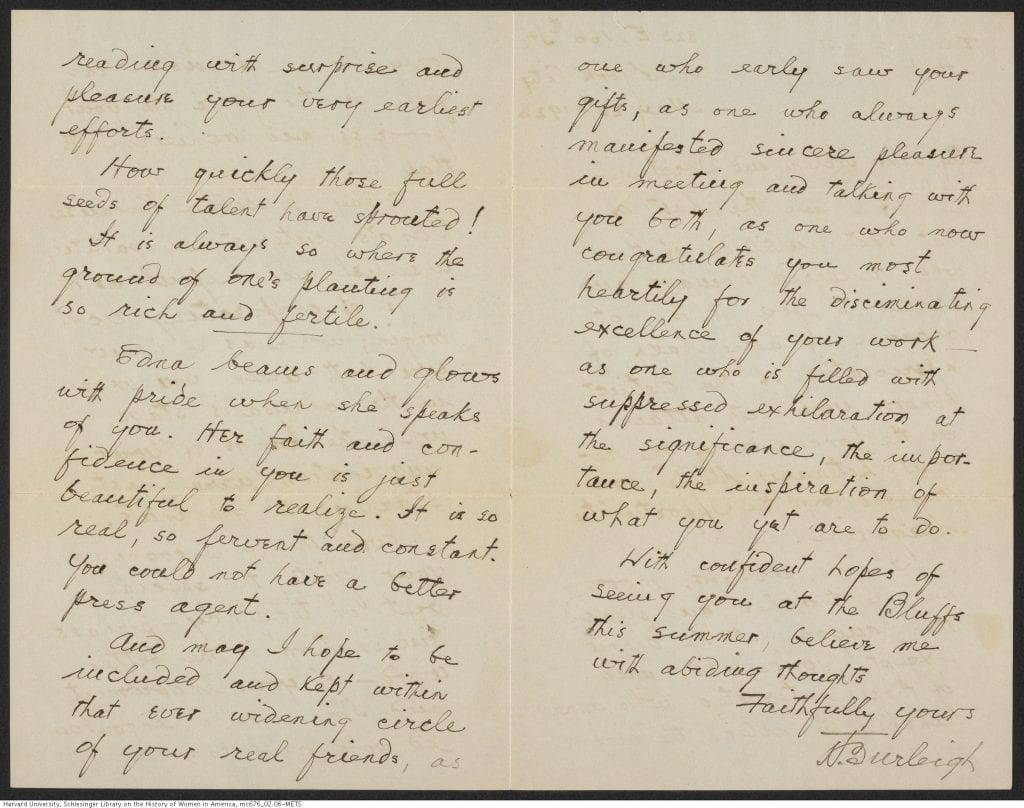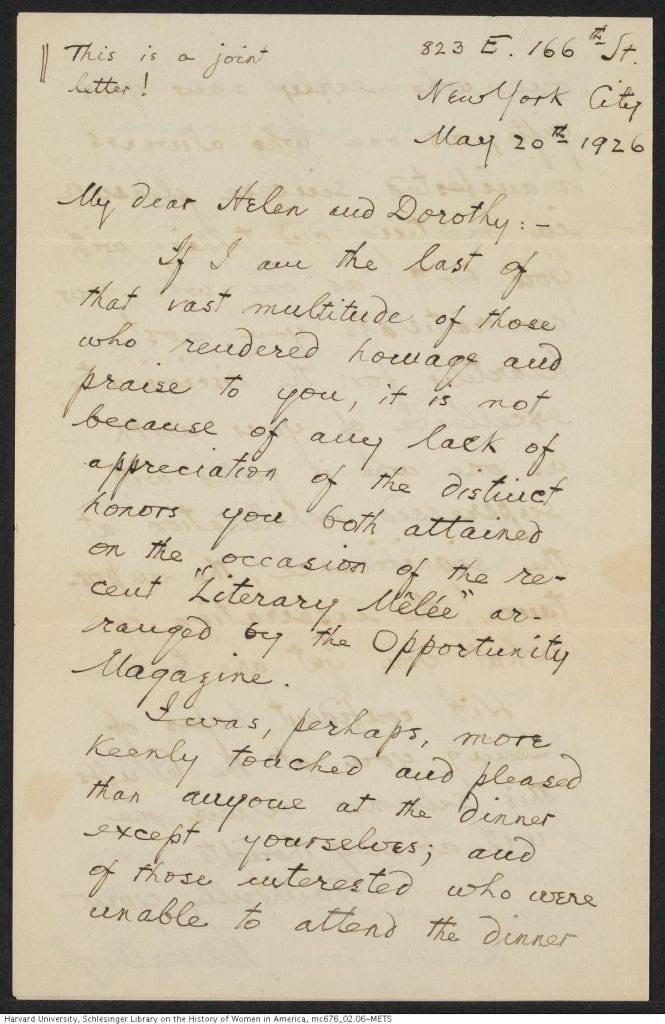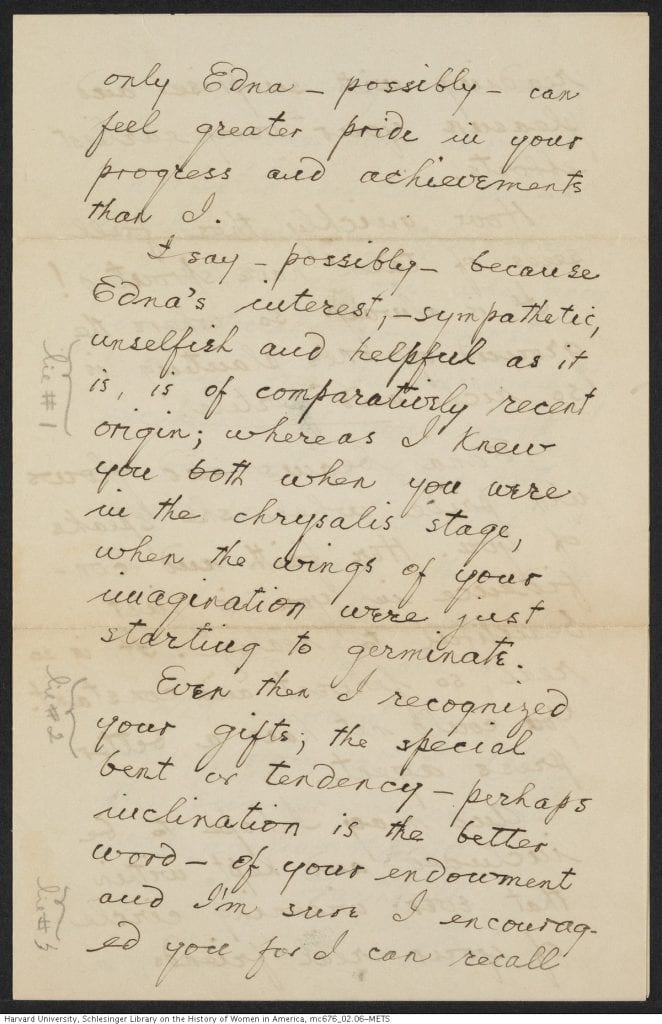I am three weeks into my research on the people H.T. Burleigh knew, and it has been full of so many different twists and turns. But researching is different for everyone. Today, I’m going to share with you the 5 things I’ve learned through our research thus far.
1. Burleigh knew a lot of people.
My specific project is working with Burleigh’s relations with other notable figures in the Harlem Renaissance, and our map will end up showing the people Burleigh knew, and each point will be where each individual person is from. Even in the age of letter writing and face-to-face conversation, Burleigh managed to network incredibly well (it makes me think about how many people I know…). The dilemma that we face with this is that Burleigh knew a lot of people who weren’t famous: finding information on them is tough. More on that later.
2. The answers you’re looking for aren’t always out there. But that’s okay.
There are plenty of times when you will be looking for specific information for a map (birth years, childhood home addresses, etc.) and you come up empty. After revisiting different databases and modifying search terms, it comes to a point where you have to tell yourself that at this current time, with the tools at your disposal, you cannot find everything. History loses small bits of information like addresses, and you can’t help that. Some people stayed in one place their whole lives, which makes our job easy, but there are plenty of others that no birthplace was recorded. Sometimes we only have a city or only have a state. As long as you state your uncertainties, you’ll be okay in the end.
3. The Grove.
Oxford Music Online (a.k.a. the Grove) is the most useful tool that I have ever come across. Not sure where to start? Grove. Never heard of a musician’s name before? Grove. Need birth and death dates? Grove. It’s the easiest and most accurate tool to use in any musician’s research needs. You’ll need a subscription, but it is worth it. Use it frequently.
4. Letters are hard to figure out!
I love reading the letters that I find: I feel like I’m able to look into the life of Burleigh in a way that wouldn’t have otherwise been possible. Unfortunately, though, I’m not inside Burleigh’s head, and letters reference people without any explanation (we can’t blame them, though. How were they to know a future researcher would be attempting to decipher their scrawl and attempt to piece together their lives?). Check this one out:

Papers of Dorothy West, ca.1890-1998. Correspondence. From Henry T. Burleigh, 1926-1940. MC 676, folder 2.6. Schlesinger Library, Radcliffe Institute, Harvard University, Cambridge, Mass.
This is just one letter of many that can be found through the Schlesinger Library Digital Collections. This is a great source because it gives us a starting point. It obviously doesn’t tell us everything we need to know, as the intended recipient of the letter doesn’t need the explanations that we do, but it’s a useful piece to our puzzle.
5. Research is frustrating, but in the best possible way.
I feel like I am doing a jigsaw puzzle but the next piece is hiding, sitting under the couch of articles and old newspapers. It’s time consuming and, at times, tedious. But you know that feeling when you find a source that is just a goldmine of information? Or when you’ve been looking for a date and you finally find that one letter that states it clear as day? That’s the most rewarding part of research. Finally finding that missing piece to fill your ever growing spreadsheet and eventually populate your map.


You must be logged in to post a comment.